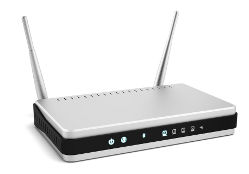How to cope without broadband
 Broadband access is a business essential. So what do you do if the location of your premises means you can’t get broadband or if your broadband connection is down? Here’s how to avoid lagging behind your competitors
Broadband access is a business essential. So what do you do if the location of your premises means you can’t get broadband or if your broadband connection is down? Here’s how to avoid lagging behind your competitors
Broadband provision is a controversial issue. Although it's now available to the vast majority of businesses in Britain, a small minority of firms still aren't able to get it.
And even if you are in a coverage area, there can still be vast discrepancies between the 'up to' speed your package is advertised at and the actual speed you receive.
So if you don’t have access to broadband, or a slow connection is holding you back, you need to find a way to manage until faster connections are available in your area.
(Don't know how fast your connection is? Use our internet speed checker.)
Broadband alternative #1: dial-up
You could consider using a dial-up internet connection, although this can be painfully slow. You need a landline phone and can choose either a pay-as-you-go service or unmetered monthly fee.
Dial-up runs at around 50 kilobits per second, which is nearly 40 times slower than a slow broadband connection of 2 megabits per second (Mbps).
Dial-up speeds allow you to do text-only tasks, such as sending emails. Downloading images will take a while, and you can forget about accessing online video.
Not many providers still offer dial-up internet, but you can try Freeola or Connect4Free. However, these days dial-up is really only for emergency use.
Broadband alternative #2: 3G (or 4G)
|
If you have a mobile phone signal but no broadband, you could buy a dongle to plug into the USB socket on your computer. This gives you broadband access anywhere with 3G mobile coverage.
Accessing the internet this way typically starts at £10 - £15 per month, but you don’t have to pay rental for a landline phone. There are also pay-as-you-go dongles available.
It's not really feasible to share a 3G connection between more than one person, but it's a good option for a single user when fixed-line broadband isn't available.
However, many providers charge for 3G based on the amount of data you transfer. This means 3G broadband can get very expensive if you use the internet a lot.
If you're lucky, you might be able to use a 4G connection instead. Available in a growing number of areas, 4G is similar to 3G, except much faster.
Broadband alternative #3: satellite
Another option is to install your own satellite internet connection. But there will be an installation fee and you have to pay for your own hardware upfront — it costs around £150 for the satellite dish, £30 to install, and then from £25 a month in ongoing charges.
Satellite providers in the UK include Tooway.
Broadband alternative #4: DIY
If you are not entirely isolated, consider bringing your community together to fund a fibre-optic broadband network.
Individuals from the affluent community of Lyddington in the East Midlands set up the company Rutland Telecom in 2002, increasing download speeds from 0.5Mbps to 32Mbps with the help of investors, then offering services to local market towns.
Or communicate offline?
Having no broadband access can limit your range of marketing options, but you could turn it to your advantage by making a personal approach your unique selling point.
Find out about local networking groups by calling your local chamber of commerce or scanning the pages of the local newspaper. Face to face contact can be more powerful than online conversations.
Consider co-working
Co-working spaces, where you can drop into a hub to use high-speed internet, are becoming a popular solution. You can search for co-working spaces on sites like ShareDesk and DesksNear.Me. WorkSnug is a directory of less-formal places to work, like cafes and bars.
This option might mean travelling into a town, but it enables you to pick up emails and update social networks regularly. If you don’t use the internet at all, you risk appearing outdated.
Another limitation is that without broadband access, you will be unable to manage your own website. However, you could outsource your website management to an independent web designer or agency, paying from £30 - £40 an hour for updates and maintenance.




